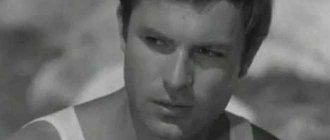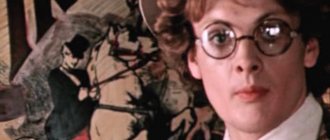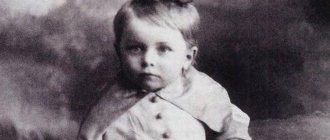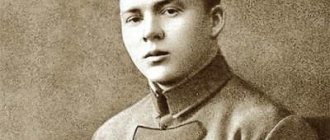The largest Soviet composer Rodion Konstantinovich Shchedrin is considered one of the most successful of his contemporaries, and not only because an army of thousands of listeners still comes to listen to his works, but also because he was married to the most legendary ballerina of his time - an incredible beauty Maya Plisetskaya. Further in the article, read about the life and work of Rodion Shchedrin. We will also briefly tell you about the love story of this beautiful and no less talented couple. By the way, they both bore the title of People's Artist of the USSR. For creative people of the Soviet period, this was considered the most honorable title.
Rodion Shchedrin: biography, pedigree
The future composer was born in mid-December 1932, in the capital of our country. His father, Konstantin Mikhailovich, was a musical figure - a theorist and teacher. But my mother, Concordia Ivanovna, had nothing to do with music. Rodion's paternal grandfather was an Orthodox priest in the Tula province, in the town of Aleksino. The path that led to the church where he held the service was christened “Shchedrinka” by the parishioners. In a word, the composer’s father, Konstantin, spent his entire childhood in the small provincial town of Aleksino. He had rare musical abilities, absolute pitch, and could remember music from one listen. One day, actress V.N. Pashennaya came to Aleksino, she noticed the boy’s talent and sent him at her own expense to Moscow to study at the conservatory.
Childhood and youth, family
Rodion Shchedrin was born at the end of 1932 in Moscow into a musical family on his father's side, Konstantin Mikhailovich was a music theorist and teacher.
No one else in the Shchedrin family was involved in music. My grandfather was a Tula priest, and my mother, Concordia Ivanovna, had no musical education at all, although she loved music. Rodion's father, Konstantin Mikhailovich, had an absolute ear for music; it was enough for him to hear music once so that he could reproduce it accurately. Actress V. Pashennaya accidentally ended up in little Aleksino, appreciated the originality of the talent and sent Rodion Shchedrin with her own money to study at the Moscow Conservatory.
Therefore, from the very beginning of his biography, Rodion fell into the hands of his musical father. The boy heard playing a variety of musical instruments at home; his father and uncle owned them. Rodion studied at a music school, although there was war all around. Just before the evacuation, the school was closed, and the Shchedrins moved to Kuibyshev.
Composer Dmitry Shostakovich also comes here. The boy watches all the orchestra's rehearsals. When the Shchedrin family returned to the capital, Rodion resumed his music studies. In the early 40s in Moscow, the young man continued his musical studies at the choir school. At the age of eleven, Rodion managed to escape to the front twice.
My parents did not force me to study and sent me to the Leningrad Nakhimov School. But it turned out that music continued to be Shchedrin’s main occupation. Only now has interest in folk music increased, elements of which Rodion managed to organically weave into the music he composed. Even the title of the First Concert, composed for performance by an orchestra, had folk motifs; it was called “Mischievous Ditties.”
The work was performed in the concert program at the plenum of the Central Committee of the Party, performed by the author, after which Rodion Shchedrin was accepted as a member of the Union of Composers. This happened in the fourth year of study at the conservatory, and then graduate school followed.
Childhood of R. Shchedrin
Born into the family of a music theorist, Rodin Shchedrin was surrounded by music from early childhood. His father and uncles were masters of playing musical instruments and often gave home concerts. In 1941, despite the fact that the country was at war, the boy was sent to the Central Music School at the Moscow Conservatory. In addition, he began taking private piano lessons from M. L. Gekhtman. However, soon the school was forced to close, and the Shchedrin family was evacuated to Kuibyshev - a city that was of strictly classified significance, since a huge secret bunker was built there for the leader and members of the Central Committee. Dmitry Shostakovich, who at that time was the chairman of the Union of Composers of the USSR, came here to complete work on the Seventh Symphony, and his father was the executive secretary of the Union. Many cultural figures were also transferred to Samara, including the Bolshoi Theater troupe. The boy often had to attend rehearsals of the Shostakovich orchestra. In 1943, they had the opportunity to return to Moscow and Rodion Shchedrin, whose biography is presented in this article, again began to attend the Central Music School. However, he himself had completely different plans for himself. He believed that he should not engage in an empty task - studying scales, but should defend his homeland. As an 11-year-old boy, he ran away to the front twice, and once even managed to reach Kronstadt. The parents decided not to force their son to study at a music school, but sent him to the Nakhimov Naval School, which was located in Leningrad. At that time, it seemed that the father’s dream of seeing his son become a musician had failed, but later events occurred that predetermined his future fate and changed the life of Rodion Shchedrin in an incredible way.
Rodion Shchedrin now
At the end of 2020, a documentary film “Passion for Shchedrin” was released to mark the composer’s anniversary. Festivals were held in Moscow and Russian cities. The Russian National Orchestra under the direction of Mikhail Pletnev, Valery Gergiev with the Mariinsky Theater Symphony Orchestra, and other famous groups and musicians performed on the stage.
Rodion Konstantinovich is still active, he is a professional long-liver. For his own birthday, Shchedrin presented a new product - “Composition for choir. A cappella".
Rodion Shchedrin in 2018
In the spring of 2018, the maestro, who has been permanently residing in Germany since the 90s, participated in the vote to elect the President of Russia. Together with choreographer Igor Zelensky, Rodion Shchedrin voted at the polling station at the Consulate General of the Russian Federation.
The composer does not sign any new contracts, but admits that the number of offers exceeds his physical capabilities.
The path to the world of music. Musical education
At the beginning of 1945, the Moscow Choir School opened in the Union, where only boys were accepted. Its founder and director was the famous choirmaster A. Sveshnikov. He invited Konstantin Mikhailovich Shchedrin to his educational institution to teach musical theoretical subjects, as well as the history of music. And he, in turn, decided to bring his Rodya here to study, who, like his father, had an ideal ear for music and a good voice. By this time he no longer studied in Nakhimovka.
Becoming a composer
From the very first days of studying at the school, choral singing captured R. Shchedrin. Later, his first works were associated specifically with the choir. By the way, already while studying at the school, many of the students did experiments in musical composition, and their director gave the young composers the opportunity to immediately perform the works they composed. In 1947, a competition for future composers was even held, with Aram Ilyich Khachaturian himself being the chairman of the jury. And so the winner of the competition was Rodion Shchedrin - a composer, although very young, but certainly talented. To the great happiness of many students of the school, meetings were organized for them with great Russian composers: Shostakovich, Khachaturian, Flier, Ginzburg, Richter, Gilels, I. Kozlovsky, etc. In addition, the school paid special attention to the students’ ability to play the piano. By the end of his studies, Rodion could compete with famous pianists. His teacher considered him an incredibly gifted young man and began preparing him to enter the conservatory.
Another step to success has been overcome
In 1950, Rodion Shchedrin entered the Moscow Conservatory, and entered two faculties at once - piano and theoretical composition. Professor Yakov Vladimirovich Flier became his teacher. The young man was so enthusiastic about playing his favorite instrument that he even thought about leaving the composition department, but his teacher did not approve of the young man’s decision. During his studies, he gained a huge amount of knowledge and also developed his musical taste. In the composition class, his teacher was Yuri Aleksandrovich Shaporin. There was a wonderful atmosphere here. From him, students learned not only professional skills, but also acquired a lot of knowledge about everything. Shaporin was a true erudite, an interesting storyteller and wit, and simply a very sincere person. He told the children the details of his acquaintance and communication with such great personalities as Blok, Tolstoy, Gorky, Benoit, Petrov-Vodkin, etc.
Musical education
But, as you know, it is useless to argue with fate. If a boy was destined to become a musician, circumstances would be such that he would begin to study music.
When in 1944 Father Rodion was invited to teach history and theory of music at the new Moscow choir school, which was directed by conductor A.V. Sveshnikov, K.M. Shchedrin asked to admit his son to the school.
As it turned out, the father made the right decision. Singing in the boys' choir not only captivated my son, but also allowed him to discover real musical abilities.
The writing of the first musical compositions is associated with this time. The students were lucky enough to listen to Shostakovich, Khachaturian, Flier, Richter, Gilels and Kozlovsky more than once within the walls of the school. 3 years after enrolling in school, young Rodion became the winner of a composition competition organized among students.
No one doubted that Shchedrin Jr. had amazing abilities. The further path of the young composer lay in the conservatory.
Since 1950, Shchedrin began studying at the Moscow State Conservatory. Tchaikovsky. By the way, he chose two faculties at once - piano and theoretical composition. The young man was very lucky, since his piano teacher was People’s Artist of the USSR Ya.V. Flier.
Being an eminent composer, Shchedrin did not miss the opportunity to talk about his luck in becoming a student of Flier himself. Thanks to the efforts of the teacher, Rodion not only mastered the piano, but also learned the laws and meaning of musical art.
Fate brought the young man together with another wonderful teacher, Yu.A. Shaporin. The famous composer and conductor gave students knowledge in the composition class.
After graduating from the conservatory (in 1955), Shchedrin was Shaporin’s graduate student for 4 years.
The work of Rodion Shchedrin: the early period
To the great surprise of many teachers, Rodion Shchedrin, the son of a music theorist, began to be interested in Russian folk music, elements of which he used in his works. He organically synthesized various excerpts from folk songs and ditties, resulting in very unique and very colorful music. Rodion Shchedrin participated in folklore expeditions, recording folk songs on tape, which villagers happily performed for him. Shchedrin especially liked ditties, and he carried his love for them throughout his life. By the way, the First Concerto for orchestra, which he wrote in 1963, was called “Mischievous Ditties”. And 33 years later, in 1999, he presented to connoisseurs of his art his new version - “Ditties”, a solo concert for piano.
Creation
As a student, Shchedrin composed the First Piano Concerto, which was included in the concert program during the plenum of the CPSU Central Committee. The musical work was masterfully performed by the author himself, after which he was admitted to the Union of Composers of the Soviet Union. This work was performed at the World Festival of Youth and Students, which was held in 1955 in Warsaw, Rodion received a prize for it.
His next work was the ballet “The Little Humpbacked Horse,” which was staged at the Bolshoi Theater in 1960. The listeners immediately paid attention to this work and appreciated it; it became clear that a new creative and unique personality had appeared in the world of music. In addition to this, Shchedrin wrote four more ballets:
- "Carmen Suite" (1967);
- "Anna Karenina" (1972);
- "The Seagull" (1980);
- "Lady with a Dog" (1985).
Even at the conservatory, many teachers were surprised that the son of music theorist Rodion Shchedrin increasingly became interested in folklore. And this was not idle interest; he used ditties, folk songs and cantilenas in his works. The composer wanted to think and create music in his native language.
Rodion went on folklore expeditions, where villagers performed folk songs with pleasure and excitement, and he recorded them on a tape recorder. He was especially keen on ditties; even his First Concerto for Orchestra, written in 1963, was called “Mischievous Ditties”.
In 1961, Shchedrin composed his first opera, “Not Only Love,” which revealed the already mature talent of the musician. During his creative activity, Rodion Konstantinovich wrote six more operas:
- 1977 – “Dead Souls”;
- 1992 – “Lolita”;
- 2002 – “The Enchanted Wanderer”;
- 2006 – “Boyaryna Morozova”;
- 2013 – “Lefty”;
- 2015 – “A Christmas Tale.”
In 1987, Shchedrin composed a musical masterpiece - “Stichera for the Millennium of the Baptism of Rus'.” This topic was of particular importance to him, because Rodion’s grandfather was a priest. The work premiered in the United States at the Kennedy Center.
Rodion Konstantinovich wrote many compositions for theatrical productions and films. His music can be heard in such famous films:
- "Height";
- "Communist";
- "People on the Bridge";
- "Normandy - Neman";
- “What if this is love?”;
- "Anna Karenina";
- "The plot for a short story."
Shchedrin wrote music for the following performances:
- “They knew Mayakovsky”;
- "First Symphony";
- "Mystery-buff";
- "Sword of Damocles";
- "Storm";
- "Bath";
- "Terkin in the next world."
Even in animated films you can listen to the musical works of Rodion Konstantinovich:
- “Cockerel – Golden Comb”;
- "Kolobok";
- "Bath".
For his creative achievements, Shchedrin was repeatedly awarded and awarded the highest government and state awards - the Order of Merit for the Fatherland, II, III, IV degrees, Lenin, Red Banner of Labor, and Badge of Honor.
Rodion Konstantinovich has the title of honorary professor at conservatories in Moscow, St. Petersburg, Beijing, as well as Lomonosov Moscow State University. In 1970, Shchedrin was awarded the title of Honored Artist of the RSFSR, in 1976 - People's Artist of the RSFSR, in 1981 - People's Artist of the Soviet Union.
Shchedrin Rodion: personal life
In 1958, a romantic period began in the life of the young composer. He met the famous ballerina, prima of the Bolshoi Theater Maya Plisetskaya. And this is how it happened. Rodion was a member of the circle of acquaintances of Liliya Brik, Vladimir Mayakovsky's muse, and was a frequent visitor to her famous evenings. By the way, he wrote music for the play “They Knew Mayakovsky,” the author of which was Lilia’s husband, writer and literary critic Vasily Abgarovich Katanyan.
One day, the owners of the house gave Rodion Konstantinovich to listen to a recording made on tape, where Maya Plisetskaya sang the melody of the ballet “Cinderella” (Prokofiev). The composer was simply amazed: he knew Maya as a talented ballerina, but he could not even imagine that she could so correctly and accurately reproduce the most complex melodies. Her gentle voice sank into his soul, and then one day he received an invitation from Lilia to an evening that she was throwing in honor of Gerard Philippe’s arrival in Russia. Plisetskaya was also among the guests. Rodion Shchedrin, of course, met her at the first opportunity. That day he played the piano only for her, although the entire Moscow elite had gathered in the boudoir. Then he volunteered to take her and other honored guests home in his car. At the end of the trip, only he and Maya were left in the car. They talked for some time about this and that. Then, as she said goodbye, she asked him to write down the notes for her for the melody from the movie Footlights. He gladly undertook to do this for her, because thanks to this he was supposed to meet her again.
Childhood
Rodion Konstantinovich was born on December 16, 1932 in the capital's musical family. All family members sang and played musical instruments, and often held musical evenings.
Little Rodion's first music teacher was his father. The man graduated from the Moscow Conservatory and had rare musical abilities: absolute pitch and so-called “tape-recorder” memory - the ability to remember music the first time.
In 1941, Rodion was enrolled in the Music School at the Moscow Conservatory, but the war interfered with his studies. The Shchedrin family was evacuated to Samara, where they met the outstanding composer Dmitry Shostakovich. Rodion attended the dress rehearsal of his famous Seventh Symphony, and this event made a great impression on the boy.
Start of a relationship
The two talented people were finally brought together by the ballet “The Little Humpbacked Horse,” written by Shchedrin and included in the repertoire of the Bolshoi Theater. He came to rehearsals not only to lead the orchestra, but also to look at Maya. Being a famous ballerina, she often went on tour around the world, so she was constantly under close surveillance by the KGB. Noticing Shchedrin's interest in her, friends from the top warned him about this, but he did not care, and he continued to follow her everywhere. In the same 1958, they began to live together, but did not register the relationship. Then they spent a truly heavenly summer at the Composers' Creativity Holiday House in Sortavala, on Lake Ladoga. The continuation of the wedding month was a trip from Moscow to Sochi in Shchedrin’s car. However, disappointment awaited them in Sochi. According to Soviet law, unregistered couples were not given joint numbers. Upon returning to Moscow, Rodion Shchedrin decided to legitimize his relationship with Maya. It was a true marriage of art that lasted a lifetime. The marriage of Plisetskaya and Shchedrin was registered in Moscow on October 2, 1958.
Works of a mature composer
Most of Shchedrin's ballets were associated with his wife, Maya Plisetskaya. So, in “The Little Humpbacked Horse” the ballerina performed the part of “The Tsar-Maiden”. By the end of his graduate studies in 1959, Shchedrin had created the following works: several piano works, choirs, the First Symphony, “Merry March of High-Rise Installers” - a song from the movie “Height”, etc. In the 60s he created the most performed composition, which was created by Rodion Shchedrin - “Carmen Suite”. The first opera he wrote, “Not Only Love,” also dates back to this period (he dedicated it to Plisetskaya). Concerts for orchestra were created - “Rings” and “Mischievous Ditties”, as well as two large oratorios “Lenin in the People’s Heart” and “Poetory” and, perhaps, the most ambitious of his works for piano - 24 preludes and fugues, which were included in Second piano concerto. In parallel with his writing, he taught at the Conservatory.
About other works by R. Shchedrin
Rodion Shchedrin is the author of 3 symphonies, 5 concerts for orchestra, 14 concerts for solo instruments and orchestra, many vocal and instrumental works, a cappella choirs based on poems by A. Pushkin, A. Tvardovsky, A. Voznesensky and others, piano pieces, chamber music -instrumental compositions, as well as music for theater and cinema (including for the film “Height” (“we are not stokers, not carpenters”), 1957, “Communist”, 1958, “Normandy - Neman”, 1960, “And if this love?”, 1961, “Anna Karenina”, 1967, “Plot for a short story”, 1969).
70s
In the new decade, Rodion Konstantinovich Shchedrin began working on the opera “Eugene Onegin,” which was intended for the Bolshoi Theater. Then in the work of R.K. Shchedrin comes a streak of satire and humor. It was from this period that “Mischievous Ditties” and “Bureaucracy” were written. “Ditties” were not particularly accepted in academic circles, but people loved them very much. This work was to the taste of the American conductor and composer L. Bernstein. Among the famous works he wrote in the 70s were librettos for stage works: operas - “Dead Souls”, “Lolita”, ballets - “Lady with a Dog”, “The Seagull”, “Anna Karenina”, which he dedicated to his wife .
80s
In 1981, Shchedrin created six choirs based on the poems of Alexander Sergeevich Pushkin, “The Execution of Pugachev”, “Notebook for Youth”, as well as 15 pieces for piano, “Concertino”, etc. The mid-80s were marked for him by the creation of works dedicated to the anniversary of his idol, 300th anniversary of J. S. Bach. His work for organ, helmets, bassoons and trombones, “Musical Offering,” amazed everyone with its scale. It seemed as if he had erected a kind of monument to the memory of the great composer. A compact version of the “Offering” began to be often heard in the Riga Dome Cathedral. Another composition by Shchedrin, which he also dedicated to Bach’s 300th anniversary, was the solo violin sonata “Echo” (1984). It began to be performed by such eminent violinists as W. Hölscher, M. Vengerov, S. Stadler and others.
In the same year, R. Shchedrin wrote the play “Self-Portrait” for a symphony orchestra.
Perestroika
With the beginning of this process, new opportunities were opened for the creative intelligentsia: now they could have foreign contracts. In 1988, a joint Soviet-American festival called “Making Music Together” took place in Massachusetts. A large delegation from the USSR went to the States. A. Schnittke, G. Kancheli, S. Gubaidulina, V. Laurusas took part in the festival. V. A. Petrov, etc. This large-scale musical event had enormous artistic and political resonance. Then it became much easier for the composer to work and create free music. This is evidenced by his works created in the 90s and in the new millennium.
Policy
In the second half of the 80s, Rodion Shchedrin decided to enter politics, and in 1989 he was elected to the Supreme Soviet of the USSR. He was part of a group whose members included Sakharov, Yeltsin, Starovoytova, Gdlyan, Popov and others. Increasingly, skirmishes arose between Shchedrin and Gorbachev. The composer advocated the rehabilitation of Galina Vishnevskaya and M. Rostropovich. In 1987, in connection with the 1000th anniversary of baptism, he wrote a grandiose work, “Stichera for the Millennium of the Baptism of Rus'.” For him, the grandson of a priest, this topic was especially close. For the first performance, the composer sent this work to Rostropovich in the States. Thus, the premiere took place at the Kennedy Center in Washington.
Farewell to the muse
Since 1991, the Shchedrin-Plisetskaya couple settled in Munich. Here they were engaged in free creativity. They were a wonderful couple who had long become one. They lived together for 57 years. Maya passed away in May 2020. For her husband, this was a terrible loss, especially considering that there was no sign of her death. A month before that, they came to Russia for the premiere of his “Lefty”. The world-famous ballerina felt great and sat next to her husband until the morning during the premiere banquet. After Plisetskaya’s death, Rodion Shchedrin announced that they had drawn up a will together, in which their last will was recorded. Neither she nor he should have a funeral. They want their bodies to be cremated, their ashes mixed together, and then scattered over Russia. As you understand, this should be when the death of Rodion Shchedrin occurs. In the meantime, the urn with her ashes is kept in the composer’s house. May God grant him long life!
Personal life
There is hardly a person who would not know that for 57 years the wife of Rodion Shchedrin was Maya Plisetskaya herself, an era in ballet. For the woman he loved, the composer wrote masterpieces and gave instead of banal bouquets: “Anna Karenina” and “The Seagull”, “Carmen Suite” and “Lady with a Dog”. Although fresh flowers appeared in the house every day.
Shchedrin and Plisetskaya met at Lily Brik's house, at an evening given in honor of Gerard Philip. Lilya drew the guest's attention to a girl who was humming music from Sergei Prokofiev's ballet, absolutely hitting the notes. But 3 years passed before the first date. After their vacation together, the ballerina and composer never parted.
Rodion remained on the sidelines all his life next to his star wife, but did not suffer from this at all. Maya treated her husband as a deity and believed that providence brought them together. Everyone outlined their love story, as well as many other interesting facts from their life together in books. Prima wrote two - “I, Maya Plisetskaya” and “13 Years Later”, and her husband wrote “Autobiographical Notes”.
The children that Shchedrin so dreamed of were not in the family. While being a guest on Vladimir Pozner’s program, Rodion said that this delicate issue was resolved according to the principle:
“I’m about to dance the premiere, it’s not for nothing that we rehearsed so much. And then we’ll think about the children.”
Rumors constantly grew around the famous couple. According to one of them, actress Maria Schell gave Shchedrin his favorite apartment in Munich. The German film star was the sister of Maximilian Schell, the husband of Natalia Andreichenko. Rodion, however, never denied that he was friends with the Shells, but nothing more.
Later in an interview, Shchedrin will tell you that when the actress tried to poison herself, allegedly because of unrequited love for a Russian composer, he lived in England and learned about what happened from the press.
In Shchedrin’s Munich house there were no other photographs left except those of Maya Plisetskaya. The only exception is a joint photo with Leonard Bernstein, whom Rodion Konstantinovich considers the greatest musician and the freest person in everything - in the manifestation of feelings, statements, actions.










